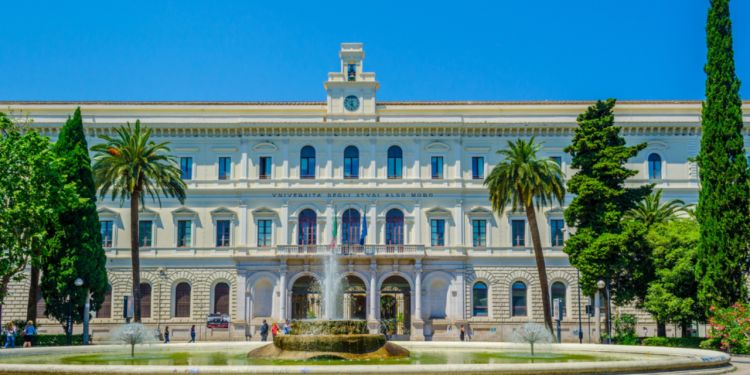Study in Italy

Italy is home to some of the oldest and most prestigious universities in Europe and the world. The University of Bologna is one of the oldest academic institutions in the world, as well as the namesake of the Bologna Process, which standardises higher education qualifications through Europe.
In addition to world-renowned teaching, studying in Italy also offers a fantastic opportunity to broaden your horizons and enrich your learning experience with a plethora of art, music, and architecture delights, in addition to the world-famous cuisine, stunning beaches, scenic mountains, and breathtaking countryside.
Good to know:
There are 91 universities in Italy:
- 60 state universities
- 17 non-state universities
- 2 Universities for foreigners
- 6 Universities for postgraduate studies
- 6 Telematic Universities
Additionally, there are non-university types of higher education which include: Higher Schools of Design, Higher Schools of Integrated Education, and Higher Schools of Language Mediation.
Choosing a university in Italy
Firstly, you need to decide which type of course you would like to enrol in. Many countries offer student exchange schemes, which provide an opportunity to study in Italy for three to twelve months. Check whether your university has any formal agreements with Universities in Italy.
The Erasmus scheme is a European Union student exchange programme, which offers students the chance to study in one of over 4000 higher institutions in 37 participating countries. For more information, consult the Erasmus website.
Laurea Triennale (Undergraduate/Bachelor Degree)
These usually take three years to complete (full-time). Subjects vary greatly, covering health, humanities, sciences, social sciences, and technology.
Good to know:
Most Laurea Triennale are taught in Italian, so you will need to prove proficiency in Italian before being accepted to the course.
Laurea Magistrale (Masters Degree)
These are usually taken over two years, and divided into four terms or semesters. A number of Italian universities now provide Masters courses taught in English.
Dottorato di Ricerca (PhD)
These typically take three to four years to complete, during which time you will complete an individual research project. You must have the relevant Masters qualification.
Applying to university in Italy
Contact your chosen university to find out the precise details around eligibility requirements. You will also need to submit a pre-application request to the Italian Embassy in your country of citizenship, with a completed application form, pre-enrolment form, leaving certificate, academic transcripts, passport photographs (2), proof of Italian proficiency (if required), and any additional documentation.
If you are from the EU, you will receive a Letter of Academic Eligibility and Suitability from the local Italian Embassy (to your chosen institution). Your chosen institution will then either accept or reject your application. If you are from outside of the EU, the Embassy will need to determine whether you are entitled to a study visa beforehand.
Student visas in Italy
If you are an EU or EEA citizen, you will not need a visa, although you will need to register for a residence permit as soon as you arrive in Italy.
Non-EU/EEA citizens need to apply for a specific visa before entering Italy. For more information on short-term and long-term visas, consult our helpful guides on visas for Italy.
Fees and funding
Fees differ depending on your preferred institution and course, but on average most undergraduate courses cost between â¬800 and â¬1000 a year. Post-graduates and PhD programs are expensive, and tuition fees at private universities are higher still.
Important:
If you are an EU or EEA citizen, you do not need to pay more than Italian citizens for tuition, but for citizens outside of the EU, fees will be considerably more expensive.
All students can apply for grants and scholarships, which are allocated based on financial situation and academic achievement. These can be granted by the Italian Government, foreign companies, Italian Universities, and other institutions. Physics, astronomy, engineering, and ICR students may benefit from Instituto Nazionale di Fisica Nucleare grants.
Accommodation in Italy
University campuses are primarily reserved for scholarship students, and Italian universities do not normally have halls of residence, but they do usually offer accommodation finding services.
Useful links:
Erasmus website
Study in Italy
University of Bologna
Sapienza University of Rome
University of Naples
University of Milan
University of Florence
University of Turin








